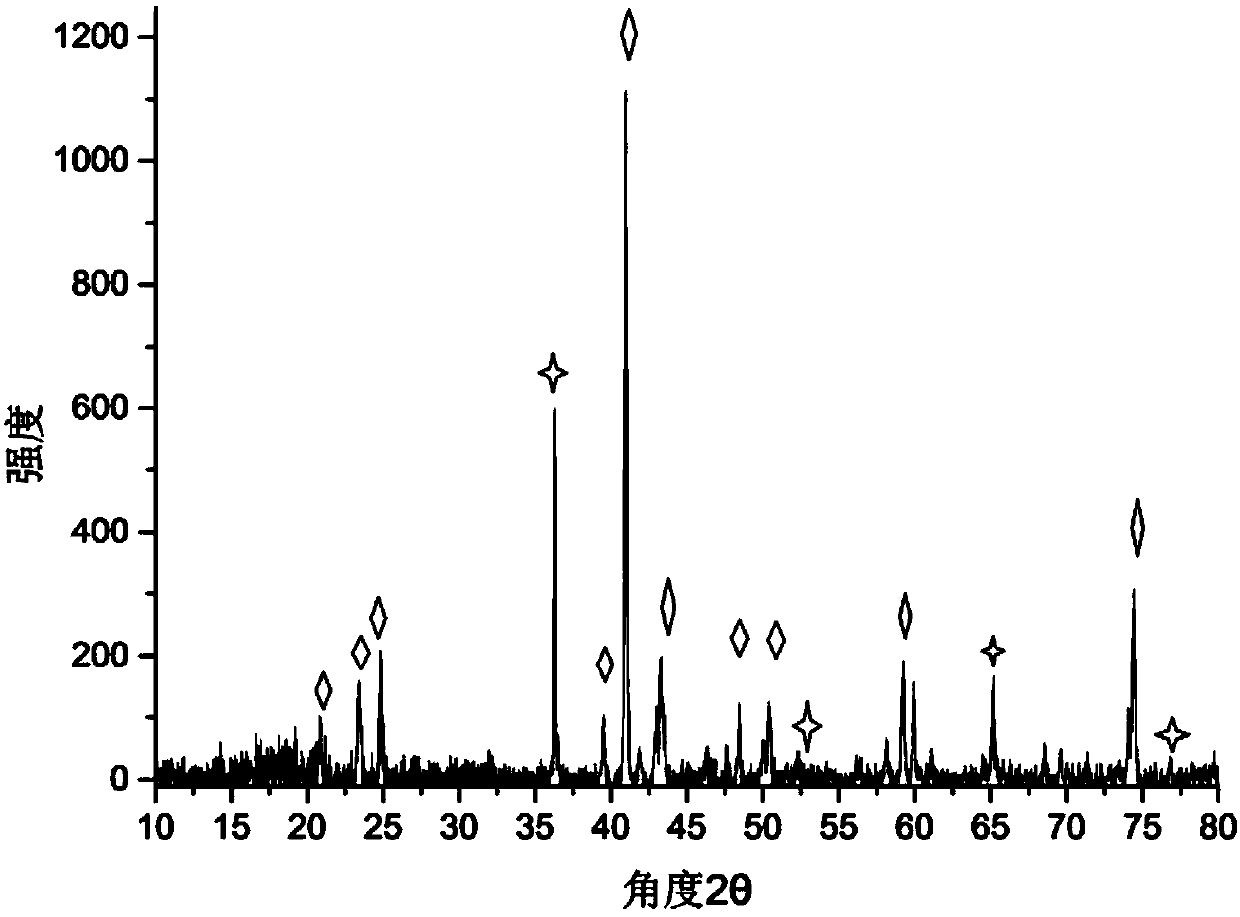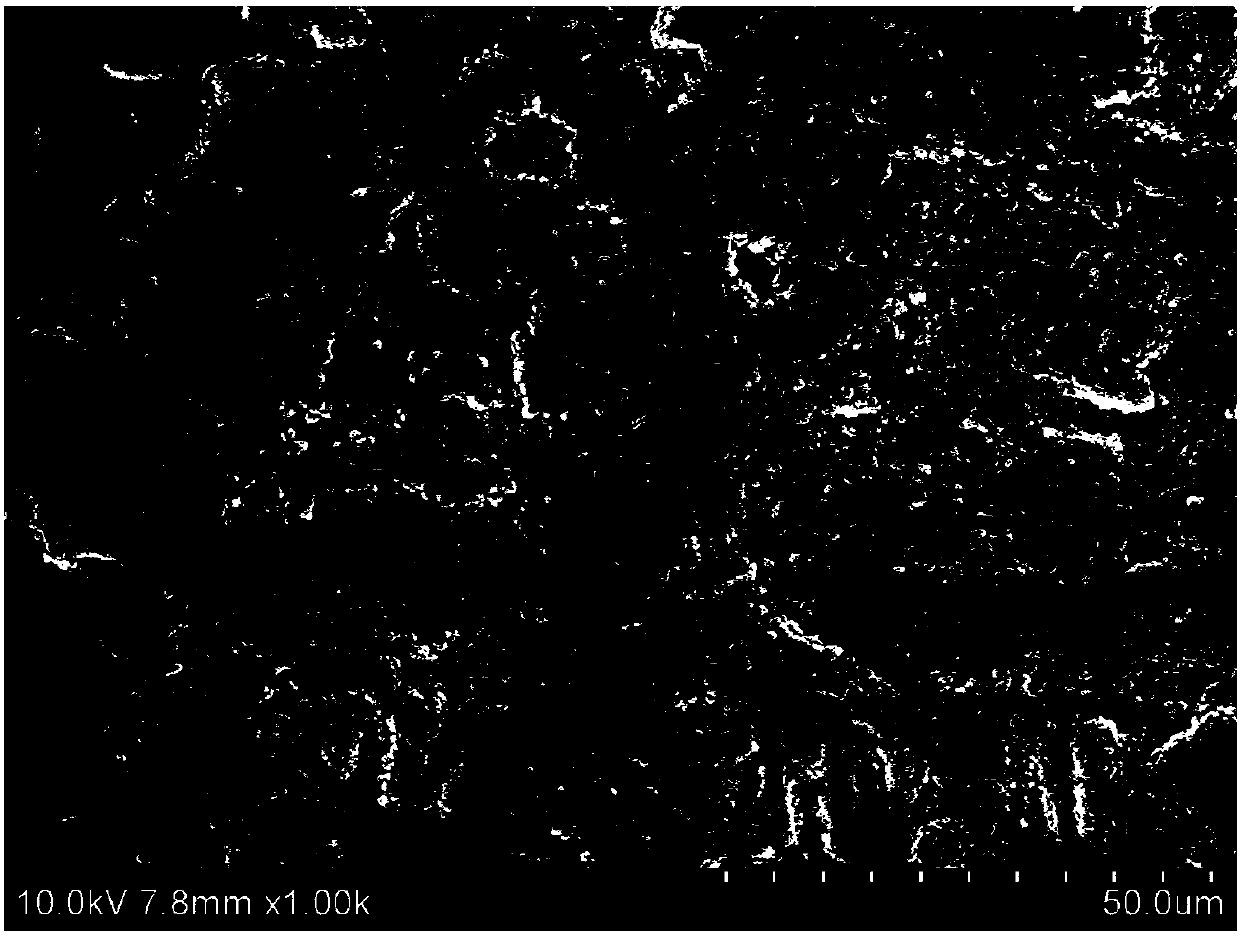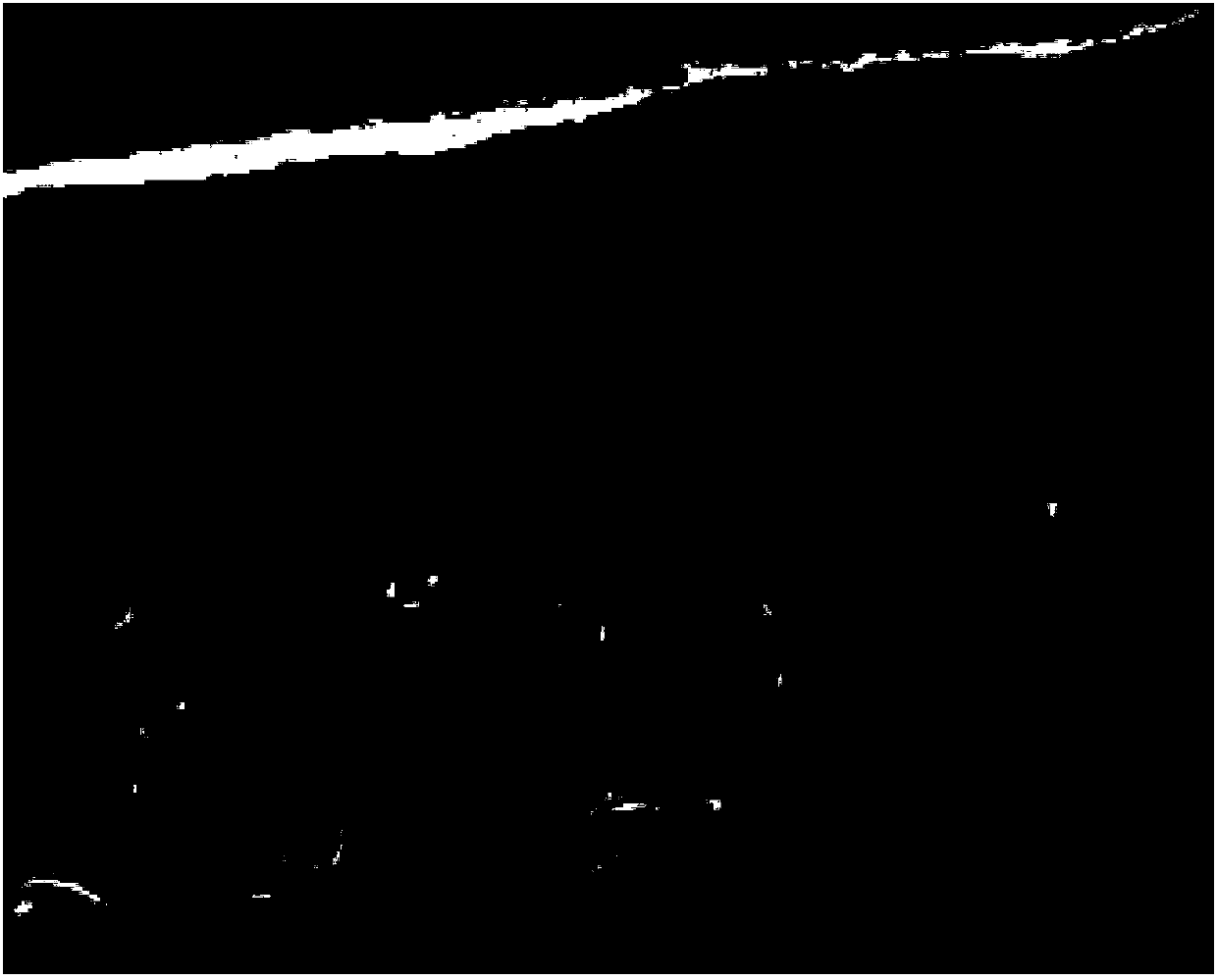Lithium metal alloy negative electrode material and preparation method and application thereof
A technology of alloy negative electrode and negative electrode material, which is applied in the direction of battery electrodes, electrical components, electrochemical generators, etc., can solve the problems of expensive nano-processing methods and complex preparation processes, and achieve rapid mass production, ensure cycle performance, and low price Effect
- Summary
- Abstract
- Description
- Claims
- Application Information
AI Technical Summary
Problems solved by technology
Method used
Image
Examples
Embodiment 1
[0056] This example is used to illustrate the preparation process of the metal lithium alloy negative electrode of the present invention.
[0057] (1) Weigh 0.7g metal lithium sheet and 0.28g monocrystalline silicon sheet, and place them in a container that does not react with lithium and silicon in a glove box filled with argon;
[0058] (2) Heating the container to 200°C, the metal lithium is completely melted, and contacts with silicon for an alloying reaction; stir the liquid alloy for 30 minutes to make it evenly mixed;
[0059] (3) Coating the mixture onto an iron foil current collector with a thickness of 100 μm; cooling down to room temperature at a rate of 80°C / s to obtain lithium metal and lithium-silicon alloy (Li 58 +Li 22 Si 5 ) negative pole, denoted as A1.
Embodiment 2
[0061] The negative electrode is prepared in the same manner as in Example 1, except that, in step (1), 0.28g of nano-silicon powder is used to replace 0.28g of single-crystal silicon sheet to obtain lithium metal and lithium-silicon alloy (Li 58 +Li 22 Si 5 ) negative pole, denoted as A2.
Embodiment 3
[0063] The negative electrode is prepared in the same manner as in Example 1, the difference is that in step (1), 1.12g of tin powder is used to replace 0.28g of a single crystal silicon chip to obtain a metal lithium and lithium-tin alloy (Li 58 +Li 17 sn 4 ) negative pole, denoted as A3.
PUM
| Property | Measurement | Unit |
|---|---|---|
| thickness | aaaaa | aaaaa |
Abstract
Description
Claims
Application Information
 Login to View More
Login to View More - R&D
- Intellectual Property
- Life Sciences
- Materials
- Tech Scout
- Unparalleled Data Quality
- Higher Quality Content
- 60% Fewer Hallucinations
Browse by: Latest US Patents, China's latest patents, Technical Efficacy Thesaurus, Application Domain, Technology Topic, Popular Technical Reports.
© 2025 PatSnap. All rights reserved.Legal|Privacy policy|Modern Slavery Act Transparency Statement|Sitemap|About US| Contact US: help@patsnap.com



